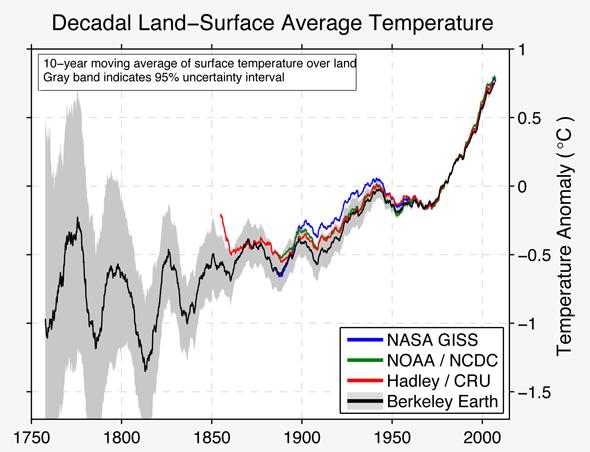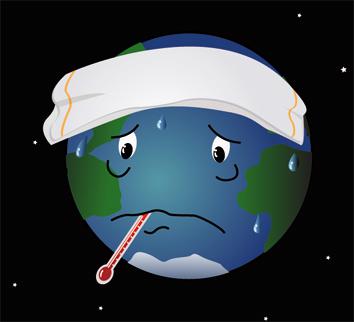The latest salvo in the War on Reality comes from the U.K. paper the Telegraph, which is a safe haven for some who would claim—literally despite the evidence—that global warming isn’t real.
The article, written by Christopher Booker (who flat out denies human-induced global warming), is somewhat subtly titled “The Fiddling With Temperature Data Is the Biggest Science Scandal Ever.” In it, Booker claims that climate scientists have adjusted temperature readings from thermometers in Paraguay to make it look like the temperature is increasing, when the measurements off the detectors actually show the opposite. The theme of the article is that scientists “manipulated” the data on purpose to exaggerate global warming.
This is nonsense. The claim is wrong. The scientists didn’t manipulate the data, they processed it. That’s a very different thing. And the reason they do it isn’t hard to understand.
Imagine you want to measure the daily temperature in a field near a town. You want to make sure the measurements you get aren’t affected by whether it’s cloudy or sunny—direct sunlight on the thermometer will increase the temperature you measure—so you set it up in a reflective box. Look: Right away you’ve adjusted the temperature, even before you’ve taken a measurement! You’ve made sure an outside influence doesn’t affect your data adversely. That’s a good thing.
So you start reading the data, but over time someone buys the property near the field, and builds houses there. Driveways, roads, houses leaking heat … this all affects your thermometer. Perhaps a building is erected that casts a shadow over your location. Whatever: You have to account for all these effects.
That’s what scientists do. That’s what scientists did. They examined the data from these thermometers all over the world, and tried to minimize the impact of outside influences. If they didn’t, they wouldn’t be able to trust the data.
How you correct the data is important, of course, and this is where the second claim comes in: Scientists manipulated the data specifically to make it look like global warming is stronger than it really is.
Ah, but we know that’s not true! A few years ago, an independent group at Berkeley Earth took that same temperature data and re-examined it, processing it in a different way. Guess what they found?
Yup. The planet’s warming up, and pretty much just as the other scientists had said. You can read more about this in an excellent article by Neville Nicholls, who is an expert in how meteorological measurements need to be adjusted in this way. There’s more at the “… and then there’s Physics” blog and at Real Sceptic, and Skeptical Science has an article debunking this as well.
A graph is worth a thousand words. Here are the results of the Berkeley research compared with various other groups:

Graph by Berkeley Earth
As you can see, there’s virtually no difference. As long as the measurements are processed properly they show what we know, what we’ve known, for quite some time: The world is warming up, and it’s warming up rapidly.
So, far from being “the biggest science scandal ever,” this isn’t even a scandal at all, and is in fact how science works. You can’t just take raw data off a detector and claim it’s real; if you do so, then at best you’d be fooling yourself, and at worst you’d be trying to fool others. And that’s certainly not how science works.
